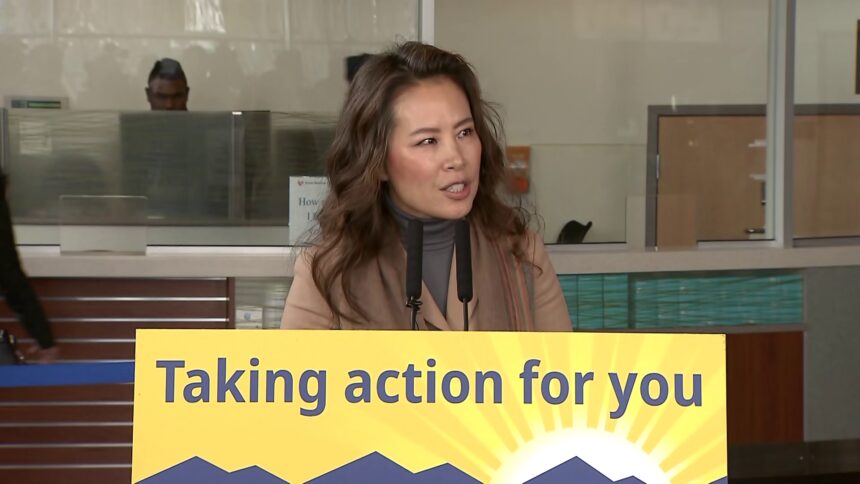The healthcare landscape in British Columbia is facing renewed scrutiny after recent disclosures revealed that Dr. Victoria Lee, former CEO of Fraser Health Authority, received a staggering $855,000 severance package upon her abrupt departure last February. This figure—equivalent to nearly two years’ salary—has ignited fierce debate about fiscal responsibility in the province’s healthcare administration amid ongoing system-wide challenges.
“At a time when British Columbians can’t find family doctors and emergency rooms are routinely closing due to staffing shortages, this kind of golden parachute is difficult to justify,” said Shirley Bond, BC Liberal health critic, in a statement obtained by CO24. “Healthcare dollars should be directed toward patient care, not excessive executive payouts.”
The severance agreement, detailed in Fraser Health Authority’s annual financial disclosure statements, comes at a particularly sensitive moment for provincial healthcare. The Fraser Health region serves 1.9 million residents across 20 communities and has been at the epicenter of capacity challenges that have plagued BC’s healthcare system since the pandemic.
Health Minister Adrian Dix defended the payout as a contractual obligation, telling reporters yesterday: “Executive contracts are legally binding instruments. While I understand public concern about the amount, these agreements are established through standardized frameworks that apply across our health authorities.”
Public sector compensation experts note that while such severance packages are not uncommon for executive-level positions, the timing and scale of this particular arrangement merit additional scrutiny. “Healthcare executive compensation in Canada typically follows established benchmarks,” explained Dr. Rebecca Morton, public administration professor at Simon Fraser University. “However, the optics of substantial severance during a period of healthcare austerity raises legitimate governance questions.”
Fraser Health has declined to provide specific details regarding the circumstances of Dr. Lee’s departure, citing privacy regulations and contractual confidentiality clauses. This lack of transparency has only fueled public speculation and criticism about potential mismanagement.
The controversy extends beyond mere dollars and cents. Healthcare advocates point to systemic issues that remain unaddressed while administrative costs continue to climb. The BC Nurses’ Union has been vocal about critical staffing shortages, with president Aman Grewal noting that “the equivalent of that severance package could fund approximately ten full-time nurses for an entire year.”
Provincial auditor general Michael Pickup has previously flagged concerns about healthcare administrative expenses across BC’s health authorities. In a 2023 report examining healthcare spending efficiencies, his office recommended stronger oversight mechanisms for executive compensation and severance arrangements.
As this story develops, attention turns to how the provincial government might respond to mounting pressure for reform. The Ministry of Health has indicated that a review of executive compensation frameworks across all health authorities is currently underway, though critics argue this response is both belated and insufficient.
For residents of the Fraser Health region, many of whom continue to face challenges accessing timely care, the severance controversy represents a troubling disconnect between administrative priorities and frontline healthcare delivery. Community health advocates are calling for greater public participation in governance oversight of health authorities to ensure alignment with patient-centered values.
As British Columbia prepares for provincial elections next year, healthcare governance and fiscal accountability are likely to feature prominently in campaign platforms. The question remains: will this controversy catalyze meaningful reform in how healthcare resources are allocated, or will it simply fade into the background as another example of administrative excess in our public institutions?










